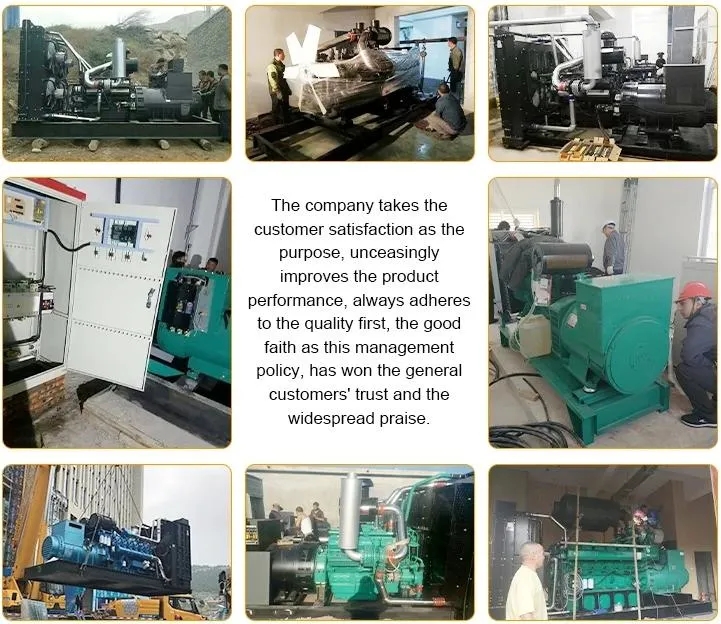Introduction
In recent years, the demand for reliable and sustainable power sources has increased significantly due to the growing global energy consumption and the need to reduce carbon emissions. Hybrid power systems, which combine multiple power sources to optimize energy generation and utilization, have emerged as a promising solution to address these challenges. Among the various components of hybrid power systems, diesel generators play a crucial role in providing backup power and ensuring system reliability. This article explores the importance of diesel generators in hybrid power systems, their benefits, challenges, and best practices for maximizing efficiency and reliability.
Overview of Hybrid Power Systems
Hybrid power systems combine two or more different energy sources to generate electricity. These systems typically include renewable energy sources such as solar, wind, or hydro power, along with a backup power source like a diesel generator. By integrating multiple power sources, hybrid systems can improve energy reliability, reduce dependency on a single energy source, and optimize energy generation based on the availability of resources.
Diesel generators are commonly used in hybrid power systems to provide backup power during periods of low renewable energy generation or when the primary power source is unavailable. Diesel generators are known for their reliability, scalability, and fast response times, making them an ideal choice for ensuring continuous power supply in critical applications such as hospitals, data centers, and telecommunications facilities.
Benefits of Diesel Generators in Hybrid Power Systems
1. Reliability: Diesel generators are highly reliable and can provide continuous power supply for extended periods without interruption. This reliability is essential for critical applications where downtime can have severe consequences.
2. Fast Start-up: Diesel generators have quick start-up times and can ramp up to full capacity within minutes, making them ideal for providing backup power during emergencies or sudden fluctuations in energy demand.
3. Fuel Flexibility: Diesel generators can run on a variety of fuels, including diesel, biodiesel, and synthetic diesel, providing flexibility in fuel choice based on availability and cost considerations.
4. Scalability: Diesel generators can be easily scaled up or down to meet changing power requirements, making them suitable for a wide range of applications from small residential systems to large industrial installations.
5. Cost-Effectiveness: While the initial cost of diesel generators may be higher compared to renewable energy sources, their low operating and maintenance costs make them a cost-effective solution for providing backup power in hybrid systems.
Challenges of Diesel Generators in Hybrid Power Systems
Despite their numerous benefits, diesel generators also face several challenges in hybrid power systems that need to be addressed to maximize their efficiency and reliability. Some of the key challenges include:
1. Environmental Impact: Diesel generators are known for their high carbon emissions and air pollution, which can have negative environmental consequences. To mitigate these impacts, it is essential to implement emission control technologies and use cleaner fuels such as biodiesel or synthetic diesel.
2. Fuel Storage and Logistics: Diesel generators require on-site fuel storage, which can be challenging in remote locations or areas with limited infrastructure. Adequate fuel management and logistics are essential to ensure a continuous fuel supply for the generators.
3. Maintenance and Service: Regular maintenance and servicing are crucial to ensure the optimal performance of diesel generators. Lack of proper maintenance can lead to breakdowns, reduced efficiency, and increased operating costs.
4. Noise and Vibration: Diesel generators are known for their noise and vibration levels, which can be a concern in residential areas or noise-sensitive environments. 150kw diesel generator for backup power as soundproof enclosures and vibration isolation systems are necessary to minimize these impacts.
Best Practices for Maximizing Efficiency and Reliability
To overcome the challenges associated with diesel generators in hybrid power systems and maximize their efficiency and reliability, several best practices can be implemented:
1. Fuel Quality and Management: Ensure the use of high-quality fuel and proper fuel management practices to prevent fuel contamination and degradation, which can affect the performance of the generators.
2. Regular Maintenance: Develop a comprehensive maintenance schedule and conduct regular inspections, servicing, and testing of the diesel generators to identify and address potential issues before they escalate.
3. Emission Control Technologies: Implement emission control technologies such as catalytic converters, diesel particulate filters, and selective catalytic reduction systems to reduce carbon emissions and comply with environmental regulations.
4. Remote Monitoring and Control: Utilize remote monitoring and control systems to track the performance of the diesel generators in real-time, detect anomalies, and optimize their operation for maximum efficiency.
5. Noise and Vibration Mitigation: Install soundproof enclosures, vibration isolation systems, and exhaust silencers to minimize noise and vibration levels from the diesel generators and ensure compliance with noise regulations.
Conclusion

Diesel generators play a critical role in hybrid power systems by providing reliable backup power and ensuring continuous energy supply in critical applications. While diesel generators offer numerous benefits such as reliability, fast start-up, and scalability, they also face challenges related to environmental impact, fuel storage, maintenance, and noise. By implementing best practices such as fuel quality management, regular maintenance, emission control technologies, remote monitoring, and noise mitigation measures, the efficiency and reliability of diesel generators in hybrid power systems can be optimized. With proper planning and maintenance, diesel generators can continue to serve as a dependable power source in hybrid systems and contribute to a more sustainable and resilient energy future.
